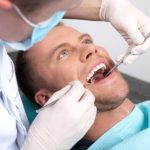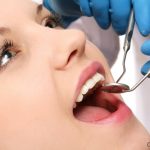How Vaping Affects Your Teeth: The Surprising Truth and Timeline

Vaping has become increasingly popular in recent years as a supposed safer alternative to smoking cigarettes. However, as research on the long-term effects of vaping is still in its early stages, we are only just beginning to understand the potential risks associated with this habit. One area of concern that has emerged is the impact of vaping on dental health. Despite the perception that vaping is less harmful than smoking, evidence suggests that it can still lead to a variety of dental problems. The truth about how vaping affects your teeth is surprising, as many people assume that it is a harmless activity. Unfortunately, this is not the case. Vaping can harm your dental health in a number of ways, from causing dry mouth and bad breath to promoting tooth decay and gum disease. In this article, we will explore the timeline of how vaping affects your teeth, from the first use to long-term consequences, to help you understand the risks and make informed decisions about your health.
Vaping is a popular method of inhaling vapor produced by an electronic device known as an e-cigarette. It gained popularity in recent years as a substitute for traditional smoking, with many users claiming it to be a healthier alternative. E-cigarettes work by heating up a liquid called e-juice, which contains nicotine, flavorings and other chemicals. The vapor produced is then inhaled into the lungs. Vaping has become increasingly popular among young adults and teenagers, who are attracted to the flavors and the perception that it is a safer alternative to smoking. However, there are growing concerns about the long-term health effects of vaping, including its impact on oral health and the potential for addiction.
Vaping, also known as e-cigarette use, has become increasingly popular in recent years, especially among young adults. However, there are numerous negative effects of vaping on health, including those on teeth. Vaping can lead to dry mouth, which can cause an increase in bacteria and plaque buildup, leading to tooth decay and gum disease. Additionally, the chemicals in e-cigarette vapor can cause inflammation and damage to the oral tissues, potentially leading to oral cancer. Other negative effects of vaping on health include respiratory issues, cardiovascular problems, and addiction to nicotine. As such, it is important to be aware of the potential risks associated with vaping and to take steps to protect your health.
How Vaping Affects Your Teeth
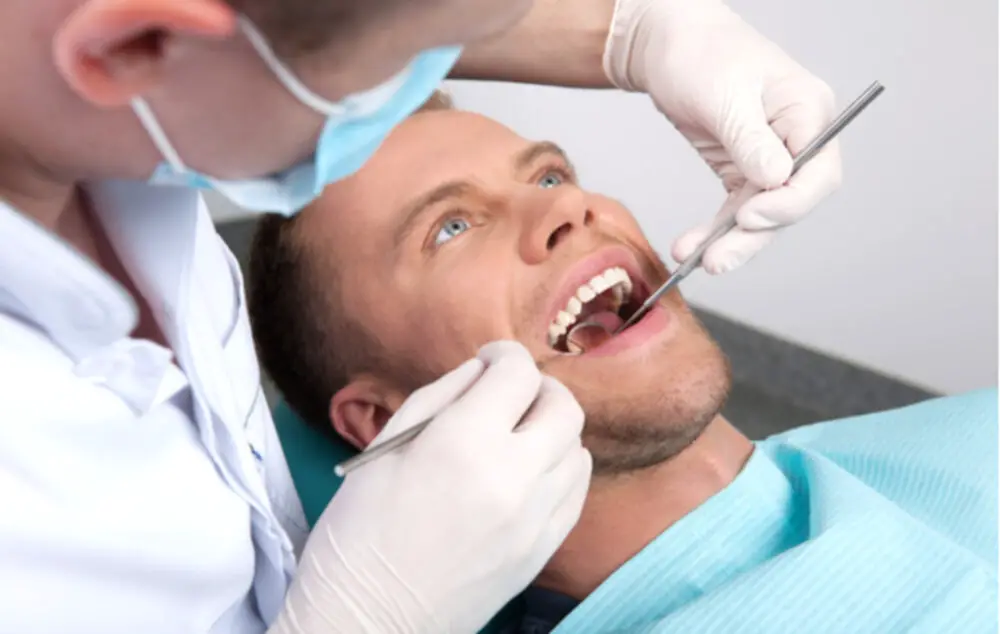
Vaping has become a popular alternative to smoking traditional cigarettes, with the belief that it is less harmful. However, recent studies have shown that vaping can have negative effects on the teeth and oral health. The nicotine and other chemicals in e-cigarettes can cause dry mouth, which can lead to tooth decay and gum disease. Dry mouth occurs when there is a decrease in saliva production, which is essential for neutralizing harmful bacteria in the mouth. Without saliva, these bacteria can thrive and cause damage to the teeth and gums. Additionally, the heat from the vapor can cause irritation and inflammation in the mouth, leading to sore gums and ulcers. Another way that vaping affects teeth is through the flavorings used in e-liquids. Many of these flavorings contain sugar, which can stick to the teeth and lead to tooth decay. Some flavorings also contain acids, which can erode the enamel on the teeth and cause sensitivity. In addition, the high temperatures used in vaping can cause the metal coils in the device to release toxic particles that can damage the teeth and gums. Overall, vaping may not be as harmless as once believed and can have serious consequences for oral health. It is important to be aware of the potential risks and take steps to protect the teeth and gums.
Vaping has been touted as a safer alternative to smoking traditional cigarettes, but it’s not without its health risks. In fact, vaping can have a negative impact on your oral health. The nicotine in e-cigarettes can cause dry mouth, which can lead to an increase in bacteria that causes cavities and gum disease. Vaping also exposes your teeth to harmful chemicals and metals, such as formaldehyde and lead, which can erode tooth enamel and cause tooth sensitivity. Additionally, the act of inhaling and exhaling vapor from an e-cigarette can cause irritation and inflammation in the mouth and throat. It’s important to be aware of these potential oral health risks if you choose to vape and to maintain good oral hygiene practices, such as brushing and flossing regularly and visiting your dentist for check-ups.
Vaping products contain chemicals that can be detrimental to oral health, especially when it comes to teeth. One of the most harmful chemicals is nicotine, which is known to reduce blood flow to the gums, leading to receding gums and tooth loss. Additionally, vaping liquids often contain high levels of acidity, which can erode tooth enamel and cause sensitivity, discoloration, and cavities. Some of the flavorings used in vaping liquids also contain diacetyl, a compound that can cause popcorn lung, a condition that damages the lungs and can affect oral health as well. Overall, it’s important to be aware of the potential risks associated with vaping and to take steps to protect your teeth and gums.
The impact of nicotine on teeth and gums is significant. Nicotine, the addictive substance found in tobacco and vaping products, narrows blood vessels and reduces blood flow to the gums, which can lead to gum disease. It also reduces saliva production, which is essential for washing away harmful bacteria in the mouth. Nicotine also stains teeth, leaving them yellowed and discolored. Over time, nicotine use can cause receding gums, tooth loss, and even oral cancer. While vaping may be marketed as a safer alternative to smoking, it still poses a significant risk to oral health. It’s essential to prioritize oral hygiene and quit nicotine use to protect the health of teeth and gums.
The Timeline of Damage
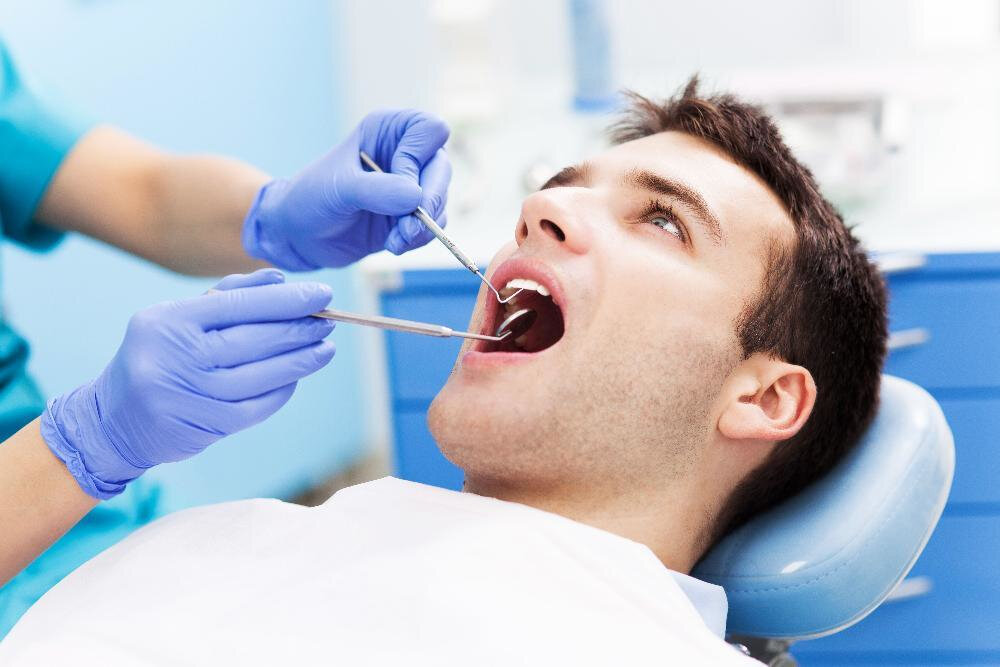
The timeline of damage caused by vaping on your teeth is a gradual and often subtle process. Initially, vapers may not notice any significant changes to their oral health, but over time, the harmful effects of vaping can become more apparent. One of the most common symptoms of vaping on oral health is dry mouth, which can lead to a buildup of bacteria and plaque. This can cause bad breath, tooth decay, and gum disease. Furthermore, the flavorings used in e-cigarettes can also damage the teeth by eroding the enamel and causing sensitivity. As time goes on, the damage caused by vaping on teeth can become more severe. The nicotine in e-cigarettes can cause the blood vessels in the gums to constrict, reducing blood flow and leading to gum disease. Additionally, the heat from e-cigarettes can cause damage to the soft tissues in the mouth, leading to ulcers and other painful conditions. Ultimately, the timeline of damage caused by vaping on teeth varies from person to person, depending on their overall health and the frequency and duration of their vaping habits. However, it is important to be aware of the potential risks and take steps to protect your oral health.
Vaping can have detrimental effects on teeth and gums in the short term. The nicotine and chemicals in e-cigarettes can cause gum inflammation and irritation, leading to bleeding and sensitivity. Additionally, the heat from the vapor can dry out the mouth, reducing saliva production and creating an environment for bacteria to thrive, which can cause bad breath and tooth decay. The acidic nature of some e-liquids can also erode tooth enamel, leading to sensitivity and discoloration. These short-term effects may seem minor, but they can lead to long-term dental problems if left unchecked. It is important for vapers to maintain good oral hygiene and regularly visit a dentist to monitor any potential damage.
Vaping has been promoted as the healthier alternative to smoking, but there is little doubt that it can still have negative effects on oral health. The long-term effects of vaping on oral health are still being studied, but the evidence so far suggests that there are several potential risks. For example, the chemicals in e-cigarettes can cause dry mouth, which can lead to tooth decay and gum disease. Additionally, the nicotine in e-cigarettes can cause the blood vessels in the mouth to constrict, which can reduce blood flow and increase the risk of infections. Finally, the act of vaping itself can cause damage to the teeth and gums, especially if the device is held in the mouth for extended periods of time. It is important for vapers to be aware of these risks and to take steps to protect their oral health.
The potential for irreversible damage to teeth and gums from vaping is a serious concern. The chemicals in e-cigarette vapor can cause inflammation and damage to the gums, leading to periodontal disease. Additionally, the nicotine in e-cigarettes can cause a decrease in blood flow to the gums, which can contribute to gum recession and tooth loss. The heat from vaping devices can also damage the enamel on teeth, leading to tooth sensitivity and an increased risk of cavities. Furthermore, the flavorings used in e-cigarettes can cause damage to the oral tissues, as some are acidic and can erode the enamel on teeth. Overall, it is important to be aware of the potential risks associated with vaping and to take steps to protect both your oral and overall health.
Prevention and Treatment
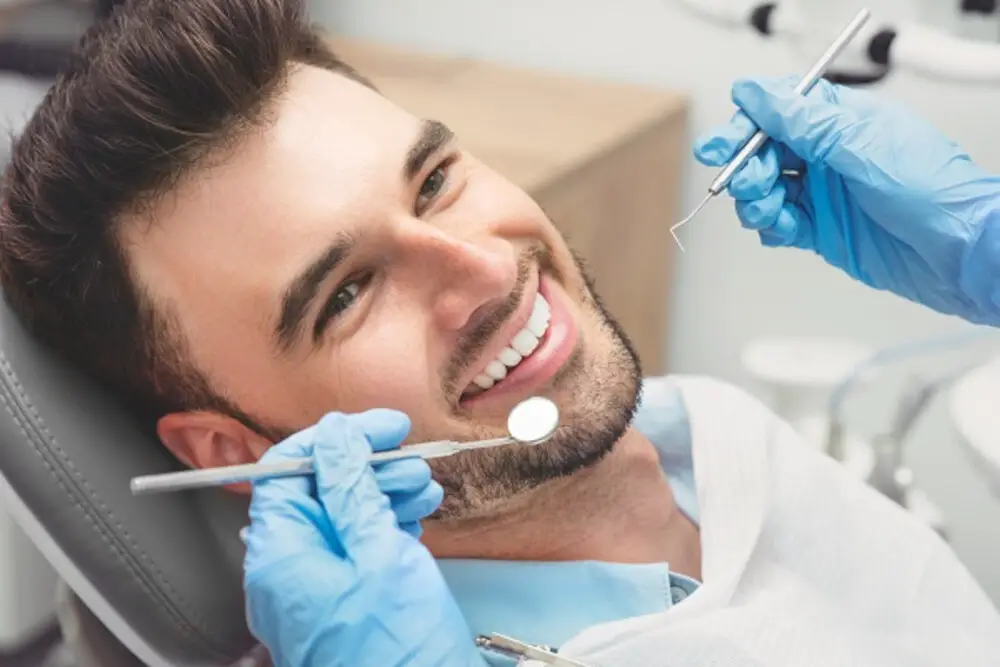
Prevention and treatment are key in maintaining good oral health when it comes to vaping. Firstly, prevention is always better than cure and this is especially true when it comes to vaping. The best way to prevent any negative effects on your teeth and gums is to quit vaping entirely. This may not be easy, but it is the most effective way to ensure that your oral health is not compromised. In addition, it is important to maintain good oral hygiene habits such as brushing twice a day, flossing and using mouthwash. This will help to remove any harmful bacteria and plaque that may be present in your mouth. Furthermore, regular dental check-ups are essential to identify any issues early on and prevent them from developing into more serious problems. When it comes to treatment, there are various options available depending on the extent of the damage caused by vaping. For example, if there is a build-up of plaque or tartar, a dental cleaning may be required to remove it. In more severe cases, restorative treatments such as fillings or crowns may be necessary to repair any damage to teeth. In cases where there is gum disease, treatment may involve deep cleaning and antibiotics. Ultimately, the key to successful treatment is early intervention. Therefore, if you are experiencing any symptoms such as tooth sensitivity or bleeding gums, it is important to visit your dentist as soon as possible. By taking a proactive approach to prevention and treatment, you can ensure that your oral health remains in top condition, even if you are a vaper.
Vaping has become increasingly popular, but it can cause damage to your teeth and oral health. Fortunately, there are preventive measures you can take to protect your teeth from the effects of vaping. Firstly, it’s essential to maintain good oral hygiene by brushing twice a day and flossing regularly. Additionally, drinking water frequently can help to wash away any residue left behind by vaping. It’s also important to avoid sugary and acidic drinks, as these can erode tooth enamel, making them more susceptible to damage. Lastly, scheduling regular dental checkups can help to catch any potential problems early, allowing for prompt treatment and prevention of further damage. By taking these steps, you can enjoy vaping without compromising your oral health.
Regular dental checkups are essential for vapers as vaping can have adverse effects on oral health. E-cigarettes contain harmful chemicals that can cause gum disease, tooth decay, and tooth loss. The frequent exposure to nicotine and other chemicals in e-cigarettes can reduce blood flow and weaken the gums, increasing the risk of periodontal disease. Additionally, vaping can cause dry mouth, which can lead to bad breath and tooth decay. Visiting a dentist regularly can help monitor and treat any oral health issues caused by vaping, as well as provide guidance on how to maintain good oral hygiene. By prioritizing regular dental checkups, vapers can take proactive steps to protect their oral health and prevent potential complications.
Vaping has become a popular alternative to smoking, but it comes with its own set of oral health problems. Vapers who have experienced oral health problems such as dry mouth, gum disease, and tooth decay have several treatment options available to them. The first step is to quit vaping and eliminate the source of the problem. Vapers can also benefit from regular dental checkups and cleanings to address any existing issues. In addition, products such as sugar-free gum and mouthwash can help alleviate dry mouth and promote saliva production, while fluoride treatments and dental sealants can help prevent tooth decay. It is important for vapers to take their oral health seriously and seek treatment as soon as possible to avoid further complications.
The Surprising Truth about Vaping and Oral Health

Vaping has become increasingly popular in recent years, and while many people believe it to be a safer alternative to smoking, the truth is that it can have serious negative effects on oral health. One of the biggest concerns when it comes to vaping and oral health is the high levels of nicotine found in e-cigarettes. Nicotine is a highly addictive substance that can lead to gum disease, tooth loss, and even oral cancer. In addition to nicotine, the chemicals found in e-cigarette vapor can also cause damage to teeth and gums, leading to discoloration, decay, and bad breath. Another way that vaping can impact oral health is through the production of dry mouth. E-cigarettes work by heating up a liquid that contains nicotine and other chemicals, creating a vapor that is then inhaled. This vapor can cause the mouth to become dry, which can lead to a host of oral health problems. Dry mouth can cause bad breath, tooth decay, and gum disease, as saliva is necessary in keeping the mouth clean and healthy. In addition, dry mouth can make it difficult to taste food, leading to poor nutrition and overall health. Overall, it is clear that vaping can have serious negative effects on oral health, and it is important for individuals who use e-cigarettes to be aware of these risks and take steps to protect their teeth and gums.
According to recent studies, vaping can have negative effects on oral health. Vaping causes a decrease in saliva production, which leads to dry mouth and an increase in harmful bacteria. This can result in tooth decay, gum disease, and bad breath. The nicotine in vape juice also causes vasoconstriction, which restricts blood flow to the gums and can lead to gum recession. Furthermore, the heat from the vaping device can cause damage to oral tissues, such as burns or lesions. It is important to note that these negative effects can occur in as little as three months of vaping. Therefore, oral health should be considered when deciding whether or not to vape.
As the popularity of vaping continues to grow, there is a pressing need to increase public awareness of the potential risks associated with this practice. While many people view vaping as a safer alternative to smoking, recent research has shown that it can still have a significant impact on oral health. From dry mouth and gum disease to tooth decay and enamel erosion, there are a number of ways that vaping can damage teeth and gums. By educating individuals about these risks, we can help them make informed decisions about their health and take steps to protect their oral hygiene. Ultimately, increased awareness of the dangers of vaping can help to promote better overall health and wellbeing for individuals around the world.
Dental professionals play a crucial role in educating the public about the risks of vaping. Vaping has become increasingly popular among young adults and teenagers, who may not be aware of the potential harm it can cause to their oral health. The nicotine and chemicals in e-cigarettes can cause dry mouth, which can lead to tooth decay and gum disease. Additionally, the heat from vaping devices can damage the tissues in the mouth, leading to inflammation and infection. By providing accurate and up-to-date information about the risks of vaping, dental professionals can help prevent oral health problems and promote healthy habits among their patients. It is important for dental professionals to stay informed about the latest research on vaping and to communicate this information clearly and effectively to their patients.
The article \How Vaping Affects Your Teeth: The Surprising Truth and Timeline\ discusses the impact of vaping on dental health. The article highlights that while vaping may appear less harmful than smoking, it can still cause significant damage to the teeth and gums. Vaping can lead to dry mouth, which can increase the risk of gum disease and tooth decay. Nicotine and the chemicals found in vaping liquids can also cause yellowing of the teeth and enamel erosion. The article provides a timeline of the effects of vaping on dental health, highlighting that damage can occur as quickly as 3 months after starting to vape. Overall, the article emphasizes the importance of understanding the risks of vaping and taking steps to protect dental health.
If you’re a vaper, it’s time to take action to protect your oral health. With the growing popularity of vaping, many people are unaware of the potential risks to their teeth and gums. From dry mouth and gum disease to tooth decay and enamel erosion, vaping can have serious consequences for your oral health. To protect your teeth and gums, it’s important to take steps like staying hydrated, practicing good oral hygiene, and avoiding high-sugar e-liquids. By taking these simple steps, you can enjoy the benefits of vaping without putting your oral health at risk. So, make a commitment today to protect your teeth and gums and enjoy vaping safely and responsibly.
In conclusion, it is crucial to address the negative effects of vaping on oral health. Vaping has become increasingly popular among young adults and teenagers, making it all the more important to understand the potential consequences. The timeline of damage caused by vaping on teeth and gums is often underestimated, with many assuming that it is a safer alternative to smoking. However, research has shown that vaping can lead to a range of oral health issues, such as gum disease, tooth loss, and tooth decay. By taking steps to minimize the negative effects of vaping, individuals can protect their oral health and overall well-being. This includes practicing good oral hygiene, using the right vaping products, and seeking professional dental care when necessary. It is up to each individual to be responsible for their own health and to take steps to ensure a bright and healthy smile for years to come.
Conclusion
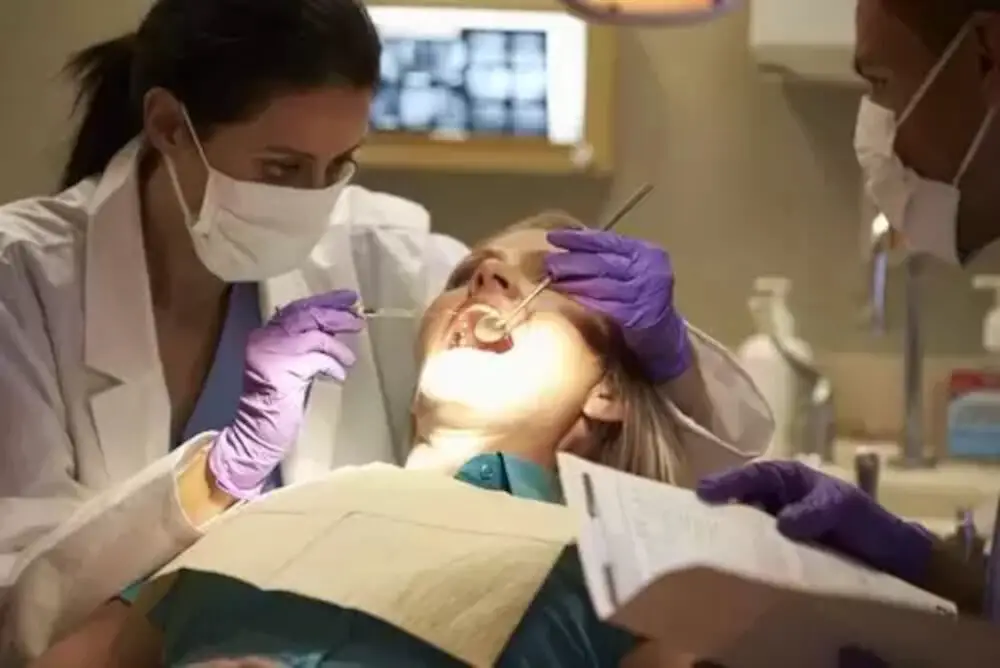
In conclusion, the surprising truth about how vaping affects your teeth is that it can have a significant impact on your oral health. The timeline of damage can vary depending on how often and for how long you vape, but the risks are real. From tooth decay and gum disease to oral cancer and tooth loss, the consequences of vaping can be severe. It’s important to be aware of these risks and take steps to protect your oral health by practicing good dental hygiene and reducing or quitting vaping altogether. Don’t let the allure of vaping blind you to the potential harm it can cause to your teeth and overall health. Take control of your oral health today and make informed decisions about your vaping habits.

